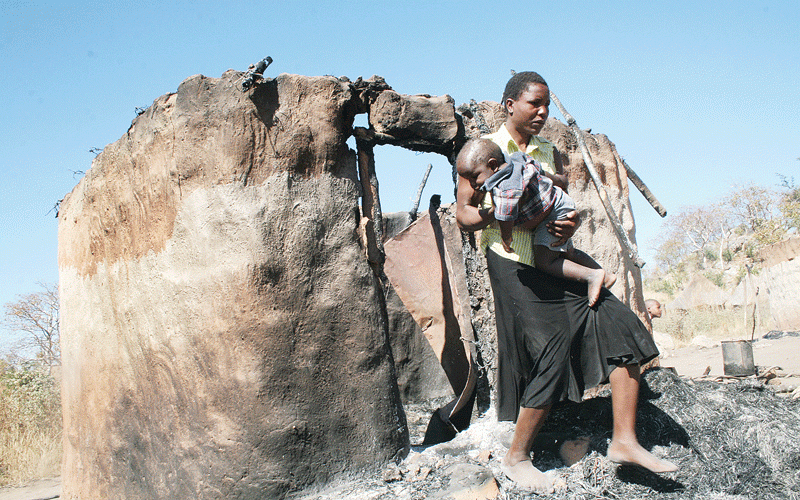
For the best part of a decade, political scientists have been warning that democracy is in retreat (Diamond 2008; Cooley 2015).
This has become more acute in recent years, and as pointed out by the varieties of Democracy Institute (V-Dem), elections have become a major strategy for autocracies subverting democracy, to either gain or maintain political power.
A recent example is Rwanda where Paul Kagame won with virtually 100% (99.18%) of the vote, mainly because the real opponents were banned from running.
Elections themselves have become a major concern for the last thirty years, and allowing election observation a critical intervention in persuading the international community that the government elected is elected legitimately.
However, elections occur in a political context, and the context is as important as the event in an election.
This suggests that any assessment of an election must have a wider brief than the narrow frame too often applied in electoral observation and assessment.
Zimbabwe is perhaps the country within Sadc that has received the most criticism for its elections since 2000 and is perhaps the notable outlier within Sadc in respect of holding elections that meet Sadc standards.
In this policy brief, we summarise the findings for Zimbabwe of the more detailed report on Elections and Political Violence in Sadc.
- We were sad to see ED in Rwanda: Ndiweni
- Kagame expected in Harare
- Kagame accuses DR Congo leader of dishonouring deals
- Rwanda's ruling party elects woman to deputise Kagame
Keep Reading
The problem Zimbabwe has received, at the least, ambivalent regional and international responses to the elections held since 2000: all seven of them have drawn adverse criticism.
The most recent in 2023 even produced a failing grade from Sadc, and the election in 2008 required intervention by Sadc and the establishment of an inclusive government under a Global Political Agreement, brokered by Thabo Mbeki, the then president of South Africa.
After every election, observer groups, both local and mostly regional (there was a period when Western observers were banned), make comprehensive recommendations for how elections in Zimbabwe can be improved
Sadc in 2004 produced the Sadc Principles and Guidelines Governing Democratic Elections, revising these in 2015, as well as establishing an advisory body in 2005, the SADC Electoral Advisory Council (Seac).
Seac’s mandate was and is very important. Under Section 7.1.1 (a) of the Principles and Guidelines, Seac shall send goodwill missions in the pre-election period to: Reflect on possible conflict situations in respective countries on matters pertaining to electoral processes and render advise to the MCO on the development of mediation strategies, before, during and after elections;
In the post-election period, Seac, in Sections 7.3.1 (a) and (b): (a) Compose a post-election review, which is of particular relevance should there be a conflict situation, and submit such report to the MCO; (b) Advise the MCO on the development of mediation strategies to address any postelection conflicts, as necessary.
Now it is obvious what needs doing in the post-election period, but less so what needs doing pre-election.
What does reflect on possible conflict situations mean?
What might an assessment of this mean in a country like Zimbabwe, the most politically polarised country out of 34 African countries, and certainly the most polarised in Sadc?
Does this mean reflect on only the likely conflicts in an election, or can it encompass reflecting on a country in sustained conflict?
Can reflection take into account ongoing political violence in the interregnum between elections, the harassment of civil society organisations and journalists, the banning of protest and demonstrations, and the erosion of citizens’ basic rights and freedoms?
If all of this was manifest in a country like Zimbabwe, would this not require the deployment of a goodwill mission, and considerably in advance of an election. After all, in such a climate how could an election be likely to meet Sadc’s Principles and Guidelines?
It might be argued that the statements above are frivolous or purely politically motivated and not matter of fact, but they are capable of empirical verification, and Seac and Sadc have access to such data, and can verify the claims made by the data themselves.
Here we draw on an overview of the data provided by the V-Dem from a more comprehensive report on SADC generally.
The findings we have not summarised the entire decade from 2013 to 2023, but compared the beginning and end of the decade.
This overview draws on 16 different indicators from the V-Dem data. In its overall classification, V-Dem characterises Zimbabwe as an electoral autocracy, where multiparty elections for the executive exist, but there are insufficient levels of fundamental requisites such as freedom of expression and association, and free and fair elections.
Zimbabwe scores low on both the indicators for liberal democracy and electoral democracy, and much lower on the former. As can be seen in Table 1, the indicator for electoral democracy remains constant, but low from 2020 to 2023, but liberal democracy declines towards the elections in 2023.
Zimbabwe also scores low on the indicator, judicial constraints on the executive, but much better on the indicator for the power of parliament, legislative constraints on the executive.
The former remains low and constant from 2020 to 2023, but the latter rise from 2020 to 2021, but then declines towards 2023, lowest in 2023. Presumably the better score on the latter is due to the presence of a moderately strong opposition in parliament capable of calling the government to account.
When it comes to elections themselves, and bear in mind the many by-elections held over the period under discussion, it is evident that Zimbabwe scores low on all the indicators above: Election vote buying, election other voting irregularities (use of double IDs, intentional lack of voting materials, ballot stuffing, misreporting of votes, and false collation of votes) ,and election government intimidation (violence carried out by groups other than the government, such a party supporters).
Overall, V-Dem gives Zimbabwe a very low score for elections on the clean election index.
When it comes to the political climate, and the ability of citizens to exercise their agency, and the basic freedoms of association, access to information and the like, Zimbabwe again performs poorly.
The political liberties index and the civil liberties index are both low and constantly low over the period, whilst CSO repression worsens, and, although harassment of journalists lessens, it is still low.
Even the equal protection index (the state grants and protects rights and freedoms evenly across social groups) steadily declines ahead of the elections in 2023.
Finally, the indices on political violence are deeply disturbing.
Both suggest high levels of political violence, and little freedom from torture or freedom from political killings, and it should be pointed out in respect of these two, Zimbabwe was the worst in the Sadc region according to V-Dem.
It is also worth commenting that these last two indicators are comprehensively corroborated by Zimbabwean human rights organisations.
The point made above in respect of election observation, and especially Sadc observer missions, was the overall context in which elections are likely to take place require comprehensive assessments, and not merely narrow ones concentrated on elections only.
For Sadc, this surely was the rationale behind the mandate created for Seac (to reduce conflict) and, as pointed out, it is the interpretation of what is likely conflict that is critical.
It is incontestable that the V-Dem indicators summarised above on elections themselves corroborate exactly what was reported by the Sadc Election Observer Mission (Seom) as well as other observer missions such as the European Union Election Observer Mission (EUOM) and others.
However, nearly a year after the election no comprehensive report has been provided by the Commonwealth observer mission, which is disturbing when the Commonwealth secretariat makes encouraging noises about re-admitting Zimbabwe to the Commonwealth.
This last point aside, it is also evident from the V-Dem data that there were multiple concerns evident from 2020 (and corroborated by many Zimbabwean sources) that the political climate generally (and the election climate) was conflictual.
Thus, it is of interest that Seac pre-election goodwill mission only visited, as far as is known, in April 2023, and this was scarcely enough time to begin mediation of any substantive nature on the extensive conflict in Zimbabwe.
It is obvious that, if Seac was serious, and mindful of the many problems that were public knowledge (and not only to Zimbabweans as V-Dem demonstrates), it’s intervention should have begun considerably before April 2023.









